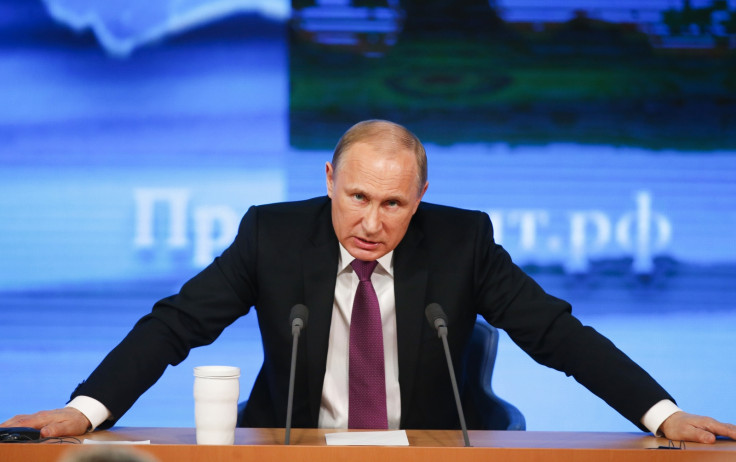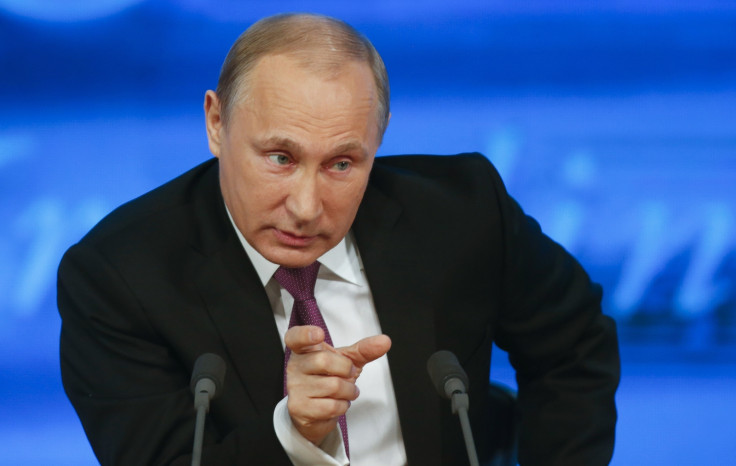Russian ruble crisis: Investors should avoid a bear that has been shot in the backside

If his words and his demeanour are anything to go by, Russian President Vladimir Putin is not a worried man.
"I would not call the situation a crisis. You may call it whatever you want." was how Putin described his view of Russia's current economic situation in his marathon press conference.
Putin's definition of crisis probably differs quite a bit from the definition of crisis held by the world at large.
The Russian ruble has devalued to nearly half the value it was just a few months ago against the US dollar.
Oil revenues make up 30% of Russia's GDP, or they used to, because oil has gone from $90 per barrel (bbl) to around $60/bbl.
Of its currency reserves, Russia has already depleted nearly 20% defending the rouble, to absolutely no avail. The world's 9th biggest economy teeters on the edge of default, but according to the man at Russia's helm there is no crisis.
The Putin show staged yesterday was primarily for an internal Russian audience. It showed nothing new, everything from the action movie style promotional advertising prior to the press conference and Putin's comments during it were political bluster.
There was no offering of any real steps that Russia would take to stem the downward economic spiral it was in. Putin offered one cause and he offered one solution.
The cause and Putin's solution
According to Putin the cause of the current economic turmoil, or "trying times" as he referred to them, was with the west.
The finger pointing came as no surprise.
For several years now Russia has successfully positioned itself in the role of a victim to garner support internally. Based on Putin's popularity this is working. Although it should be noted that in an authoritarian regime it's easy to poll well when there is no effective opposition.
What is important to read between the lines is that Putin's accusations at the west amounts to a clear admission of the effects that the sanctions are having on Russia.
Putin's solution, like it is so often with political leaders, was to tell his people to do nothing and just sit and wait it out. This is surprising coming from a leader who goes to great lengths to portray himself as a man of action.
How will this play out?

Putin's own analysis of the situation is both right and wrong.
Personally, for Putin, there is no crisis, because in any authoritarian regime political power trumps economic necessities each and every time. Putin's position remains strong.
There is no effective opposition in Russia and there is hardly likely to be any mass uprisings against Putin. The strategy for Putin remains the consolidation of power.
So what is an investor to do?
The volatility of the rouble and oil price dependent Russian stocks are a great opportunity for sure, but a play on any of those is all about timing a market correctly. Timing the fickle moves of the volatile markets of a national economy in a crisis is notoriously difficult.
Underlying all this is the reality that there is no end in sight to sanctions, Putin offered no olive branch and most worryingly the Ukraine crisis remains and could blow up again at any moment.
The direction of the price of oil is anybody's guess and Russia's currency and economy lies in tatters.
Contrary to what Putin says this will not be over in a short while and the current state of affairs is a real threat to the global economy.
The Finns have a saying that you should avoid a bear that has been shot in the buttocks. Wise words from Russia's neighbour, a nation that was under Russian rule and fought two wars with them.
The Banker's Umbrella, the world's most popular blog on private banking and wealth management.
The author is a former senior private banker with a wealth of experience in multi-asset portfolio management and writes anonymously.
© Copyright IBTimes 2025. All rights reserved.





















